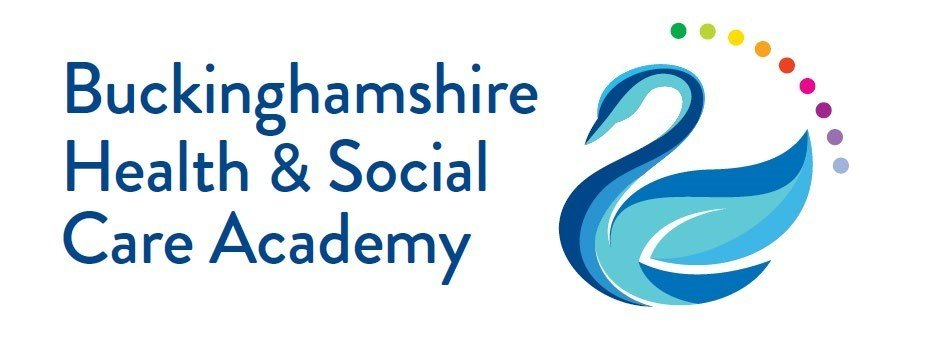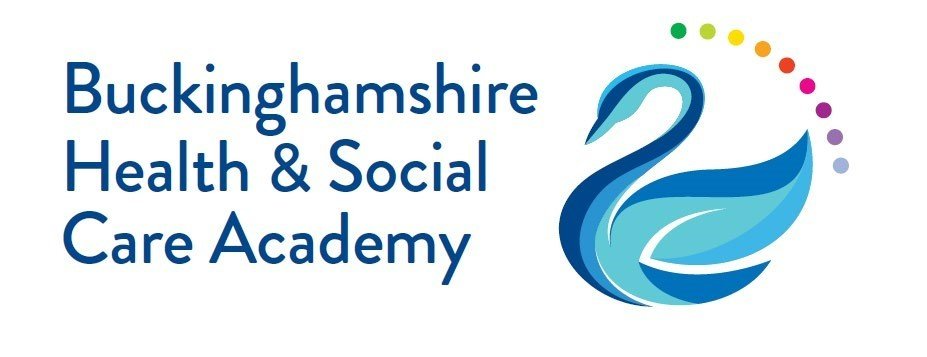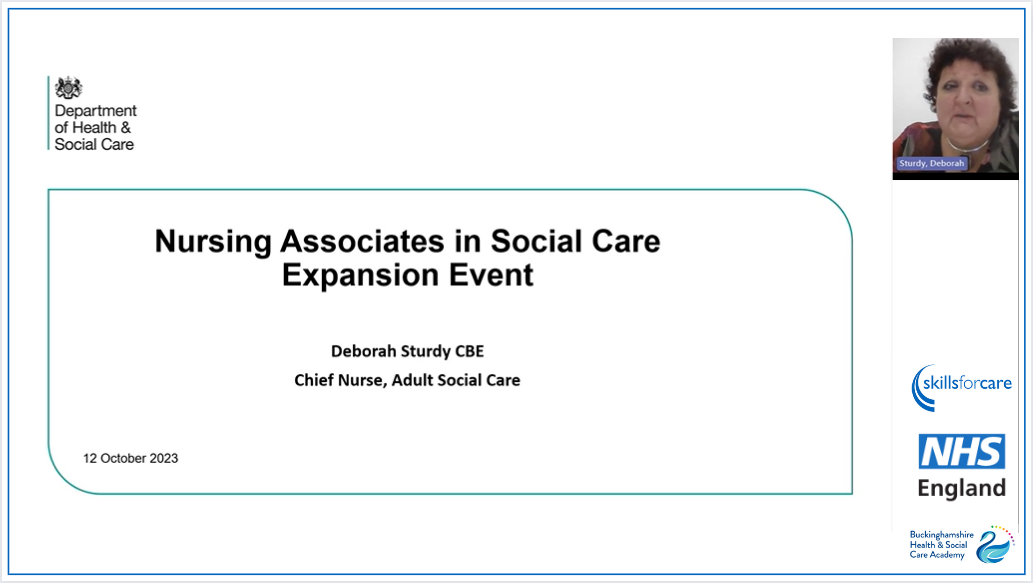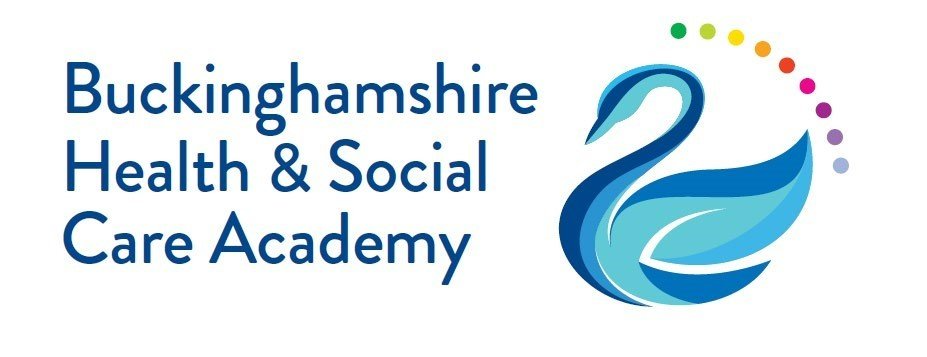Faculty of Nursing & Midwifery
This Faculty will endeavour to develop staff that are agile and capable of operating across organisational boundaries, as well as creating a mobile workforce that is skilled and engaged.
Collaborative working practices with partner organisations will be key to the success of this faculty. Our focus is to open up educational pathways for Nurses & Midwives, covering school engagement, employability programmes and Nursing & Midwifery educational programmes.
Faculty Aim:
To improve the outcomes for people that access Health and Social Care across the Integrated Care Partnership in Buckinghamshire.
Faculty Vision:
To create a nursing & midwifery workforce that is competent, knowledgeable, skilled and engaged with high retention and low turnover.

Jan Marote
Nursing & Midwifery Faculty Lead
Jan qualified as a registered nurse in 1984, completing one of the UKs first Nursing degree programmes at Chelsea College, University of London. In a varied career, she spent 16-years away from the NHS in a number of sales and marketing roles, working for a large corporate company, where she developed her business acumen in a target driven competitive environment. A nurse at heart, she returned to the NHS in 2001, undertaking a return to practice programme, before rebuilding her clinical expertise in both surgical and medical areas within the Buckinghamshire Healthcare NHS Trust.
With a passion for making a difference to patient care and recognising the importance and influence of good quality clinical education, Jan joined the Practice Development team within BHT in 2009. During her early years in education, she contributed to the development of the Trust’s Preceptorship Programme and, as a Clinical Skills Educator, to the development and implementation of an array of clinical education programmes and practice standards. She has been instrumental in the growth and innovation of the education, learning and development in Buckinghamshire Healthcare, working in various roles before becoming Assistant Director for Clinical Education in September 2018.
Buckinghamshire System Placements Management
A centralised approach “one-stop shop” for all Buckinghamshire placements:
- For all learners at all levels, placement hosts, and HEI’s
- Meant to benefit our future workforce and communities
- Stemming from themes arising at BHSCA conference
- Particularly facilitating learners into primary and social care.
Commencement of this project began early 2025; BHT is proposed as the anchor organisation as it has well established structures/processes to support student placement and already manages approx. 680 student placements per quarter. There are systems in place at BHT for Nursing, Midwifery, AHP, Medical, PA, DNs, HVs, Pharmacy Techs, Pharmacy Grads, and T Levels.
This Hub will expand across Acute, Community, Primary and Social Care, and Private & Voluntary.

Primary Care Knowledge Specialist Project
The Library and Knowledge Service at BHT is proud to continue its Primary Care Knowledge Specialist (PCKS) initiative: an innovative project designed to support the learning and development of both students and qualified nurses working in primary care.
Through this service, you’ll gain free access to a wide range of trusted information and learning resources, including:
- Expert-led literature searches
- Support with study skills
- Tailored guidance from our friendly, knowledgeable team
Originally launched in 2021 as part of a national pilot programme by Health Education England, the PCKS project has now been extended to March 2026: a testament to its impact in making NHS Library and Knowledge Services more accessible to primary care colleagues.
- We’re actively seeking funding to continue this vital support beyond March 2026, ensuring even more professionals can benefit from the resources they need to thrive.

Gill Rose, Primary Care Knowledge Specialist for Buckinghamshire
Gill brings over 16 years of experience in the healthcare sector, including two years in primary care and nearly 14 years supporting the Women, Children and Sexual Health Services division at Buckinghamshire Healthcare NHS Trust.
She is passionate about supporting colleagues in their professional development, offering tailored sessions on study skills and academic referencing. Gill has worked with a wide range of learners, adapting her approach to meet individual needs and learning styles.
As part of the BHT library team, Gill also provides expert support with literature searches for staff in primary care and is always happy to arrange training for those who wish to develop their own research skills.
With an OpenAthens login, healthcare professionals and students can unlock a wide range of trusted digital resources to support study, clinical practice, and professional development.
Here are just a few of the key platforms available:
BJN Inform - provides nurses with concise, accessible guidance on all aspects of nursing practice
Cite them right – a referencing resource to help you when you are studying
Clinical skills.net – a user friendly set of illustrated clinical skills guidelines to help you understand the principals of a particular skill
Internurse – A large collection of peer reviewed nursing content, including the British Journal of Nursing
MAH Complete – includes a wide range of clinical nursing journals as well as leading journals in midwifery, dental nursing and pre-hospital care
Wiley Royal Marsden Manual 10 – this online manual includes over 350 evidence based clinical procedures related to every aspect of care, from handwashing to cardiopulmonary resuscitation
For more information:

Nursing Associates Apprenticeship Programme for Social Care Providers across Buckinghamshire
(Click each tab for more info)

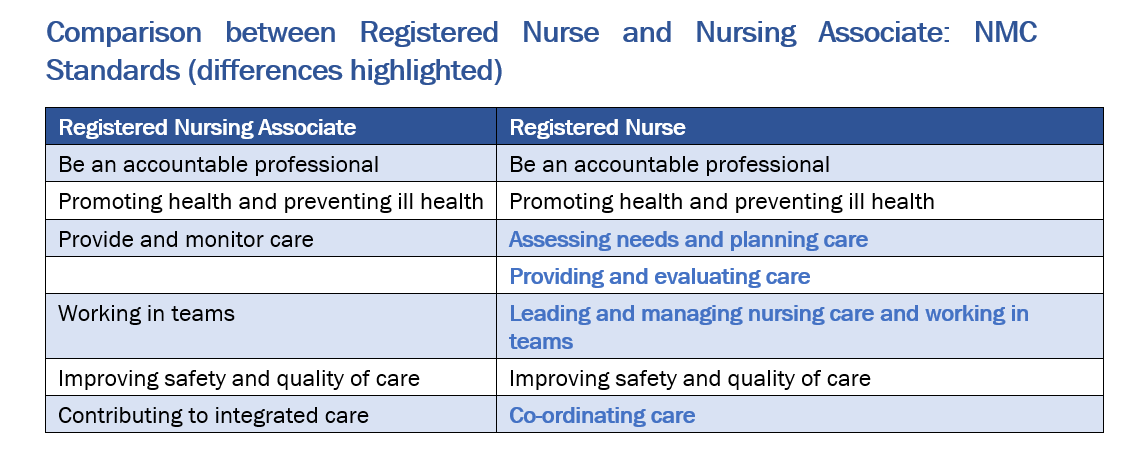
Nursing Associate Expansion Project in Social Care (Southeast) Event
hosted online on 12/10/2023
Keynote speeches and the project evaluation report can be found below.
Evaluation Report by Fani Liapi - Senior Research Fellow, University of Bedfordshire
If you wish to receive the full circulation from the day, with all presentations, please request so
here
